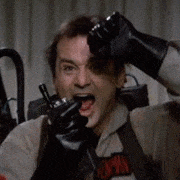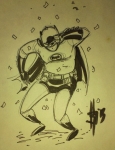|
A little catharsis for the frustrated writers out there. Eminem - Rabbit Run
|
|
|
|
|

|
| # ? Apr 29, 2024 18:23 |
|
Can we talk about stageplays in this thread too? Or is it only for prose?
|
|
|
|
change my name posted:Can we talk about stageplays in this thread too? Or is it only for prose? There's already a thread for that
|
|
|
|
Stuporstar posted:As far as long rambling novels go, few beat The Count of Montecristo as the longest page-turner I ever tried to devour whole (took me a whole week). He spent more than a few paragraphs on character description, and most either revealed essential character, or was described from another character's perception to reveal their character (love that done well). I love The Count of Monte Cristo. But I'm sort of torn about just how long the imprisonment section takes. On one hand it's the most boring slog of the book, and it's super early on, but on the other it really does convey the situation very well. As others have said GRR is just a bit much for me sometimes, but I think it's just a subjective thing, as those books are massively popular so some people must really dig it. I guess it can add to the immersion if you are forced to observe all of the minute details. Also, I haven't dived into this board much, is there any kind of place I can check out the work of goons? Anywhere links to ebooks, blogs or anything is collected?
|
|
|
|
PoshAlligator posted:I love The Count of Monte Cristo. But I'm sort of torn about just how long the imprisonment section takes. On one hand it's the most boring slog of the book, and it's super early on, but on the other it really does convey the situation very well. You just made me realise I'd confused the spelling of the book with my favorite cigar. :facepalm: I have to agree. That one section was a slog up until he met the monk, because Dumas is far more interesting when he's writing character interactions. As for goon writing, you can check out the Thunderdome for flash fiction, and theres also the Goonreads thread which has its own website.
|
|
|
|
sebmojo posted:Holy hell, you're the worst. OK, victory goes to CantDecideOnAName by default. But writing? I came at it thinking, "oh this is the easiest! No paint, no guitar strings, no computer programs even! It's just ideas, thrown onto a page! It's telling stories! I do that all the time!" So far, the poo poo I've done - all three or four different approaches have gone this way, each time: - Brilliant loving idea! - Flash of lightning writing it all down capturing it as a series of steps (guy finds a watch, guy wears watch, hooker blows him, steals watch, he kills hooker, etc etc) - I write the story. - I read the story I wrote and I KNOW I can make it better. - I rape my idea into a dead pile of hobo feces. Is it my lack of vocabulary? Or my insistence that I can write something completely original so I avoid tropes? Maybe it's my lack of comprehension of acts, character arcs, oh, gently caress I don't know! It all started out easy as gently caress. Tell a story. A story is, "there's this guy, poo poo happens to him, and wow hunh?" but somehow my writing, (prose?) sterilizes the poo poo. I lose track of the bigger idea as I scrub each sentence, fixing tenses, redundancy, removing adverbs. Augh it's pissing me off now. OH BUT I'LL WRITE YOUR drat NOT-TOLD-SECRET tale. I will.
|
|
|
|
magnificent7 posted:But writing? I came at it thinking, "oh this is the easiest! No paint, no guitar strings, no computer programs even! It's just ideas, thrown onto a page! It's telling stories! I do that all the time!" Write crap. You've gotta start somewhere and you won't suddenly become a master overnight.
|
|
|
|
magnificent7 posted:But writing? I came at it thinking, "oh this is the easiest! No paint, no guitar strings, no computer programs even! It's just ideas, thrown onto a page! It's telling stories! I do that all the time!" Well, there's your problem. I'm being facetious, but only a little. Writing badly isn't that easy. Writing well is a drat sight harder for nearly any given value of 'well.' Literary artwork, genre fluff, all the shades in between: it's hard. You shouldn't get discouraged by that, because it's normal. magnificent7 posted:So far, the poo poo I've done - all three or four different approaches have gone this way, each time: Your ideas may be less brilliant than you think! This is normal too! Are you a bookworm? Do you read voraciously? It's important: writers read a lot. Stephen King mentions this in On Writing, which is a decent guide as such things go. The best way to understand character arcs, narrative arcs, pacing, flow, and other such terms is to read the kind of stuff you want to write and think about how it works (or doesn't). Failing that, you should still read a lot to get a handle on which ideas are unusual and which are seriously overplayed. Some people can also absorb grammar and technique this way. magnificent7 posted:It all started out easy as gently caress. Tell a story. A story is, "there's this guy, poo poo happens to him, and wow hunh?" but somehow my writing, (prose?) sterilizes the poo poo. I lose track of the bigger idea as I scrub each sentence, fixing tenses, redundancy, removing adverbs. If there's someone out there whose ideas look better on the page than they did in his head, I hates him, precious, I hates him forever. Prose is a goddamn amazing tool for telling stories--look at how Shakespeare's mastery of metaphor, turn of phrase, sentence rhythm, everything turned his story about a prince whose mother marries his murderous uncle into one of the most famous plays in our language. The idea alone isn't that good. His art and technique elevated it. None of us is Shakespeare, but prose is still the best tool we have for giving our ideas wings. As tools go, though, it's closer to a jigsaw than a hammer. It's easy to use, but using it well is a matter of talent, skill, and experience in some combination. Early attempts are going to be crooked. Trying to fix it may make it worse if you don't know what you're doing. But why blame the tool? You need that tool to produce something worthwhile; the fault is in your lack of practice. If you're seriously blaming problems with your work on the need for verb tense consistency (I kinda doubt it, but I'm not altogether sure), you aren't going to get far. At all. TL;DR summary: Practice more, write more, and never think it's strange when the work isn't easy.
|
|
|
|
In my experience good writing doesn't come about so much from being really good at it, just through accumulating so much poo poo that some of us has to be kinda good. There really is no better advice than persistence. Also just reading and absorbing a lot to learn that way too. Maybe that changes later on, I still feel fairly "young" writing-wise, so maybe you will refine, but that's the only rough advice I have to crises of confidence like that. I can't speak for anyone else but at least 80% of my writing folder is just snippets of the most godawful poo poo I would never want to show anybody. I feel that in interviews and such writers sometimes feel the need to beat around the bush about that, and depending on who they're talking to it's probably a good idea. Like, a newspaper interview vs. a university lecture -- they're usually a lot more honest in the former. But I feel like it's something everyone probably has. It's easy to idealise people as great at everything they do because you only see some of it. All writers are pretty much building on the same essential roots. I think David Almond said something of the sort in a lecture I went to recently and it was really encouraging and refreshing. e: I do hate when people think writing is easy, though. It's like super hard. I'd like to see some of the people that talk down about it give it a try.
|
|
|
|
magnificent7 posted:Great posts so far, but just want to add my two cents. The best way to become a better writer, aside from the aforementioned "read all the time", is to also write all the time. Like seriously - every. single. day. Find a time in your day where you're always doing nothing and when your body and mind will be refreshed and make that your dedicated writing time. For me personally, I write every morning from 5:30 to 7 (if not longer) before I have to go to work at 8. I used to write after work, but my job sometimes gets stressful and after a hard day I would just want to come home and pop a beer and watch TV/read a book/play a videogame/hang out with friends/indulge a billion other distractions that would keep me from writing. But at 5:30 in the morning, I'm never going to be doing any of that poo poo, so it's the perfect time for me to sit down at my computer and let the creative process do its thing. It was tough at first, since I'd never previously been a morning person, but I've gotten so used to it now that my day feels drab and incomplete if I don't do it, like I've let myself down somehow. It's actually allowed me to appreciate my weekends more too, since I can sit down to write in the morning as usual and not have to worry about a precise stopping time. Remember that my "writing time" is specifically selected due to my daily life. If it makes more sense for you to have your writing time in the afternoon or evening, then go for it, but just make sure it's a time schedule you can keep, without any outside interference. It's a lot like having a good workout routine actually - most personal trainers will tell you to work out the same time everyday during a time when you know you won't get distracted. Writing is very similar to working out in that respect (and different in just about every other). For all I know you may already have this kind of thing sorted for yourself, but if you don't, you need to. It'll not only improve your writing, but improve your patience and persistence with writing as well.
|
|
|
|
Thanks for all your fantastic input. To quickly respond: I've had SK's "On Writing" since it came out a decade ago. Read it twice, (ten years ago when I didn't even try to write) and I'm reading it again. Along with "Self Editing for Fiction Writers" and another book I spoke about earlier. I think the easiest way to equate all this is that I can read about writing all I want, but until I start squeezing out the loafs, it'll always be poo poo. So yes. I'll start writing every day. I hate it. I don't have time for it. But I'll do it. Just as soon as I finish recording my gold record. And these nachos.
|
|
|
|
I could challenge you to another throwdown. Hell, we all could. It'll be your own personal
|
|
|
|
Why is it so much easier to see what's wrong with someone else's writing than your own? I'm pretty sure it can't just be arrogance? ...and for anyone who's figured this out, what do you do to mitigate that fact - without slowing your writing pace to a depressing, editorial lope?
|
|
|
|
Symptomless Coma posted:Why is it so much easier to see what's wrong with someone else's writing than your own? I'm pretty sure it can't just be arrogance? It's not usually arrogance, just being too close to the writing's source. It's a lot easier to edit if you just come back to something after a week or two. Just for the fresh perspective. That's why when you look back at old stuff you think it's all awful.
|
|
|
|
fellow thunderdomers: what do you do when the story you're working on is just complete garbage and you realize the idea just doesn't work? Do you scrap it and start over with a new (rushed) idea or do you try to edit it and make it work? I had this problem a bit ago, and I'm having it again. I don't want to be a "no-show" but I also don't wan't to submit something that I think is lovely even as I'm writing it.
|
|
|
|
Symptomless Coma posted:Why is it so much easier to see what's wrong with someone else's writing than your own? I'm pretty sure it can't just be arrogance? It's not arrogance, but it's a scientific fact that if you look at yourself and your work often and for a long time, and wish it to be better, your perception of it will become distorted making you see it as better that it really is. Purportedly you can learn to notice the illusion for what it is. Other ways to deal with it are to put your appraisal of your work off for a year, or involve parties without a vested interest. What I really came here to ask is, as I'd like to broaden my reading horizon, but I wouldn't want to overextend it, what's the best place, or book for me to go to, to learn about the diversity of modern literature with important influences (I guess)? I've looked at world literature textbooks and I kind of doubt that sagas are relevant for modern writing (although I've read enough of them when I was younger, and for university)... I guess more precisely I'm interested in the most prominent examples of writing styles. Something that I could read reasonably quickly to decide which of the examples I'd like to check out more in depth.
|
|
|
|
crabrock posted:fellow thunderdomers: what do you do when the story you're working on is just complete garbage and you realize the idea just doesn't work? Do you scrap it and start over with a new (rushed) idea or do you try to edit it and make it work? I had this problem a bit ago, and I'm having it again. I don't want to be a "no-show" but I also don't wan't to submit something that I think is lovely even as I'm writing it. I scrap it and start over. The last week that I won, I had spent three days writing something that was pretty bad, so I scrapped it and started over with a similar concept in a totally different plot and setting. See if you can keep the good aspects of your idea, but throw away everything that isn't working. Doing it from scratch will help you not feel bogged down and frustrated.
|
|
|
|
systran posted:I scrap it and start over. The last week that I won, I had spent three days writing something that was pretty bad, so I scrapped it and started over with a similar concept in a totally different plot and setting.
|
|
|
|
crabrock posted:fellow thunderdomers: what do you do when the story you're working on is just complete garbage and you realize the idea just doesn't work? Do you scrap it and start over with a new (rushed) idea or do you try to edit it and make it work? I had this problem a bit ago, and I'm having it again. I don't want to be a "no-show" but I also don't wan't to submit something that I think is lovely even as I'm writing it. I would say that the best strategy is to scrap and start again as systran says. That makes me a big hypocrite, as I have never once scrapped a story I was writing. Butcher, alter, redirect - sure, but never scrapped in entirety. I couldn't even tell you for sure whether there is a rhyme or reason behind that or whether it is just because 90% of the time I am writing my entries in one sitting. I don't like going back to square one. If I think I've really screwed the pooch, there is still a lot to be salvaged or built on from anything you have written. I find it easier to write to alter significantly than start afresh, but I don't really see that as necessarily a good thing.
|
|
|
|
If you (like me) do not have the time to pick up books or because your work involves so much reading of corporate documents, subscribing to a newsletter or a mailing list that sends you short stories or quick reads can help. http://www.delanceyplace.com/index.php is a good start.
|
|
|
|
crabrock posted:fellow thunderdomers: what do you do when the story you're working on is just complete garbage and you realize the idea just doesn't work? Do you scrap it and start over with a new (rushed) idea or do you try to edit it and make it work? I had this problem a bit ago, and I'm having it again. I don't want to be a "no-show" but I also don't wan't to submit something that I think is lovely even as I'm writing it. The first draft of any of my stories is always the unloveable, neglected and slightly roughed up red-headed stepchild of my creative effort. I go into it knowing that I will savagely hate whatever comes out of my brain on a first attempt. But I write the story anyway. It's like those first awful moments when you realize that, yes, you are in fact waking up with a hangover and, no, you don't get to sleep through it. The sooner you get up, spit out errant bits of vomit and take a watery dump, the sooner you can get on with your day. But that's just me. I like to keep a certain parity between my writing and drinking habits. So to answer your question: Just get really drunk and then post post post.
|
|
|
|
Symptomless Coma posted:Why is it so much easier to see what's wrong with someone else's writing than your own? I'm pretty sure it can't just be arrogance? Distance is the most important thing in editing your own work. I have a friend who, as they call it, 'micro edits' as they go along which I can't really make sense of. For me the most important thing is to just get something out of my system and then leave it for a couple of days. Just let it go. Then when you come back to it it's amazing how much stuff you pick out, how many awkward turns of phrase you see, how you realise parts don't make sense. For me, printing it out helps. For the longest time I was reading it off the screen, but really taking the time to sit down and read it was a great help. The sooner you can admit to yourself that some of what you write is just crap the better. Then realise that you're not alone in that. No writer has ever just spun gold from the first attempt to the last, there comes with it the agonising and the self doubt. gently caress it, let it come, then write your way out of it.
|
|
|
|
"Micro editing" makes sense on, say, a 2nd or 3rd draft, but the 1st draft? I'm surprised your friend finishes anything. That said, every writer is different so who am I to judge.
|
|
|
|
DrVenkman posted:For me, printing it out helps. For the longest time I was reading it off the screen, but really taking the time to sit down and read it was a great help. This is an interesting phenomenon that I think may have less to do solely with sitting down to look at a printed page and more to do with literally 'seeing' the work in a different state than when you wrote it. For instance, my editing abilities improved dramatically when I began exporting my drafts to the kindle format and using that to look it over and make notes on problem areas. Using the same program I write with (Scrivener) just puts me in 'writer' mode which isn't the desired state for editing work. Other, more basic things can help as well: changing the font/size of the text, using a different computer than the one you wrote with, having a special location where you only do editing etc. The same principle applies to recording music as well; professionals never have an album mastered at the same studio it was recorded and mixed in. The change of venue--not to mention the fresh ears and perspective--go a long way to making a given thing ready for consumption.
|
|
|
|
I've got a question about writing dialogue I was hoping you guys could help me with cause it's always a sticking point for me when I'm writing. I don't struggle to have things for my characters to say and I don't think I struggle in making their speech seem realistic or believable. I seem to struggle with pacing my characters discussions. The best way I can think to explain it is that in conversations there are often pauses or parts where one person doesn't immediately know what they are saying. What it results in is my dialogue reads like two people you know talking with no hesitation as though they have known what they both were going to say five minutes ago. It almost feels like reading script dialogue. I try to break up the dialogue with actions, description of facial expressions, tone, body language but then if I do THAT too much it seems like I'm just trying to over describe the scene. So basically any advice you can give on realistically pacing dialogue would be very welcome, thanks guys.
|
|
|
|
El Seano posted:So basically any advice you can give on realistically pacing dialogue would be very welcome, thanks guys. Read it out loud.
|
|
|
|
El Seano posted:So basically any advice you can give on realistically pacing dialogue would be very welcome, thanks guys. Post an example. What you're saying doesn't make a lot of sense to me and I'd need an example to be able to figure out what to tell you.
|
|
|
|
Chillmatic posted:Post an example. What you're saying doesn't make a lot of sense to me and I'd need an example to be able to figure out what to tell you. Something I'm working on right now. Joel and Amelia are friends talking in a bar. quote:
It just reads to me as though they aren't having to think about what they are saying as characters, they already just know what to say as though they're reading off a script. In real life I don't think, even though they're hardly saying anything earth shatteringly complex or original, they'd talk like they already knew what to say. Maybe I'm over thinking it I don't know but I kind of want dialogue to reflect those little moments in conversation where one or the other collects their thoughts before they speak. Is that any clearer? I get that it's kind of an weird point, that's about as well as I can think to phrase it though.
|
|
|
|
There are a lot of problems with that sample, first and foremost being numerous grammatical/formatting errors. Second, the use of dialogue tags other than 'said' and 'asked' is acceptable but best when done sparingly. Quipped, exhaled and so on when used in excess will exhaust the reader; you already used several in that short bit. Third, you need to choose stronger words in the dialogue itself and rely less on spelling it out for the reader by specifying that someone was being sarcastic or exhaling in exaggeration (whatever that means). My main issue with this dialogue is that it's boring, mainly because nothing really happens and you're spelling out too much for me-- which means you're not letting me, the reader, do any work. Do this: pick a favorite scene from a movie or TV show that you enjoy and transcribe it. Literally write out the dialogue as it happens, including facial expressions, tone of voice, body language etc. See how it looks, how hard it is for you. Since you already know that dialogue is 'good', you can focus on expressing it cleanly and interestingly. Once you're able to do that, you can start working on your own dialogue.
|
|
|
|
Chillmatic posted:There are a lot of problems with that sample, first and foremost being numerous grammatical/formatting errors. Thanks for the advice. I'm just starting to try to write so that's all pretty valuable stuff for me. I'll go work on that. see what comes up for me.
|
|
|
|
Chillmatic posted:Do this: pick a favorite scene from a movie or TV show that you enjoy and transcribe it. Literally write out the dialogue as it happens, including facial expressions, tone of voice, body language etc. See how it looks, how hard it is for you. Since you already know that dialogue is 'good', you can focus on expressing it cleanly and interestingly. Once you're able to do that, you can start working on your own dialogue. As a devil's advocate, don't do this unless you're scriptwriting, and even then sparingly. Your characters need to find a voice, but it's not going to happen by watching actors (and by extension, directors) at work. If you do do this, you can also just watch/listen to normal conversations around you (hopefully interesting ones). e: I suppose another way to say it is you need to write enough information to get the reader grounded, but also leave enough to let their own imagination fill in how the people are acting, speaking, etc. SaviourX fucked around with this message at 00:09 on May 17, 2013 |
|
|
|
SaviourX posted:As a devil's advocate, don't do this unless you're scriptwriting, and even then sparingly. Your characters need to find a voice, but it's not going to happen by watching actors (and by extension, directors) at work. Uh, what? One of the standard bits of advice for writers in general is "read more, always read more." How is this advice any different than that? The point of the exercise is not to literally copy someone else's style in your own future writing; it's to become comfortable with writing out dialogue, with the flow and feel of it. The point is to understand the anatomy of great dialogue. And to be blunt, the vast majority of authors, even good ones, write absolutely terrible dialogue. I think "read more" is great advice for every single subject except dialogue. In that arena, movies and TV shows (with good writers, anyway) are miles ahead of the vast majority of fiction writers. It makes sense when you think about it. Novelists--with prose as a crutch to fall back on for narration, exposition, etc--can get incredibly lazy when it comes to getting their characters to properly convey ideas in a captivating fashion. quote:If you do do this, you can also just watch/listen to normal conversations around you (hopefully interesting ones). No. No. "Real-life" dialogue is incredibly uninteresting. Always. No exceptions. This is why amateur writers who try to imitate "real-life" always get eviscerated. No author should ever try to imitate what people sound like in real life. It's a recipe for failure and bored readers. People talk with lots of ums and errs and awkward pauses and unnecessary verbal tics. For an example of someone trying to write "realistic" dialogue, watch The Room. Johnny: [walks into flower shop] Hi. Flower Shop Clerk: Can I help you? Johnny: Yeah, can I have a dozen red roses, please? Flower Shop Clerk: Oh, hi, Johnny. I didn't know it was you. [grabs bouquet of roses] Flower Shop Clerk: Here you go. Johnny: That's me. How much is it? Flower Shop Clerk: It'll be eighteen dollars. Johnny: [hands over cash] Here you go. Keep the change. [grabs flowers and pats dog on the counter] Johnny: Hi, doggy. Flower Shop Clerk: You're my favorite customer. Johnny: Thanks a lot. Bye! Flower Shop Clerk: Buh-bye! Dialogue should never ever be "realistic". It should be interesting and above all engaging. Chillmatic fucked around with this message at 15:20 on May 17, 2013 |
|
|
|
Chillmatic posted:Dialogue should never ever be "realistic". It should be interesting and above all engaging. Yay to the second part, boo to the first. Dialogue writing comes in many different shapes and sizes. Some, especially books that make no pretense towards realism, have long speeches and grand monologues, characters with witty retorts for every scenario and all sorts of stuff that never happens 'in real life'. Often genre is written into dialogue - escapist romance or noir et al. will reflect themselves in the interactions between characters. I guess I'd call that life imitating art. This doesn't mean that dialogue shouldn't be realistic however. People may stumble over their words in real life, but I guarantee that is almost always not because they don't know what they are trying to say, but rather because they don't know how to say it (or are worrying about other factors.) Writing in hesitation, confusion, umms and errs, will always feel strange because writing is a medium played out in a person's head where you never suffer from the same impediments. A writer should be aiming to imitate the realistic thought processes of people, putting down on paper what people are trying to say rather than what they actually do say. Observation and self-evaluation helps for that sort of thing, and is more art imitating life. It goes without saying that your little example dialogue Chillmatic is very banal. But that doesn't mean all slice of life exchanges should be stripped from all books, not every non-plot exchange need be culled. That dialogue could easily be stripped down to perhaps three lines and a bit of description - once you have removed all the trappings of expected social mores and unnecessarily linear details. As a final little point, another reason I really think people should pay attention to realistic dialogue is that lots of amateur writing is very tedious and linear. In fact, people tend to bounce around in conversation. Non sequiturs and sudden subject changes are common. Obviously don't overdo it to the extent that you sacrifice clarity, but it is vital to remember that people don't talk like robots either.
|
|
|
|
Jeza posted:Yay to the second part, boo to the first. Dialogue writing comes in many different shapes and sizes. Some, especially books that make no pretense towards realism, have long speeches and grand monologues, characters with witty retorts for every scenario and all sorts of stuff that never happens 'in real life'. Often genre is written into dialogue - escapist romance or noir et al. will reflect themselves in the interactions between characters. I guess I'd call that life imitating art. This actually answers my original question quite well so thank you. I agree that it shouldn't be wrong for dialogue to be realistic as long as it is still entertaining. I think my favorite writer in terms of dialogue is David Benioff, his characters seem to talk and their conversations seem to have the flow and banter I have with my friends but they are entertaining characters discussing interesting/amusing topics. As a reader I can recognize a little of my own life in that and as such it gets me far more into that. His dialogue is the one I'd love to be able to emulate, whatever situation his characters are in what they are saying and the way that they say it comes across as completely believable whether it's two friends, boyfriend-girlfriend or father-son. Thanks for the continuing advice, this is massively eye opening for a beginner like me, I already spent two hours last night just working on dialogue over and over, I figured out what I wanted my characters to say and challenged myself to say it less in words and more through action. The advice I got about making the reader work a little was great, things read so much better when you aren't spelling everything out. By leaving stuff out I found myself making a much clearer picture in my mind.
|
|
|
|
Jeza posted:A writer should be aiming to imitate the realistic thought processes of people, putting down on paper what people are trying to say rather than what they actually do say. Observation and self-evaluation helps for that sort of thing, and is more art imitating life. Again, I couldn't disagree more with this. I'd say believability is what the author should strive for in character interactions/dialogue, rather than being realistic. They may appear to be similar concepts but they're really not. People enjoy fiction precisely because it isn't realistic. Of course you need believable characters, but nobody wants to read a book or watch a movie that's every bit as realistic as their day at work or school. I feel vehemently about this, obviously, but I believe the proof that I'm correct lies in the fact that a universal complaint about nearly every new writer is the boring dialogue and underdeveloped characters. And this is because the new writer mistakes believable for realistic. quote:It goes without saying that your little example dialogue Chillmatic is very banal. But that doesn't mean all slice of life exchanges should be stripped from all books, Yes it does. It absolutely does. In the example I gave you, literally nothing happens except the character buying roses. Bad writing is full of that, and it's never ever necessary in a book or script. "Slice of life" is not the issue; the issue is boring, predictable, and banal interactions that do nothing to further character or plot. Every single word in a book--dialogue or not--should only ever be used for one of those two purposes (character or plot). There's literally no other reason to show or involve your reader in anything that doesn't have to do with either. quote:That dialogue could easily be stripped down to perhaps three lines and a bit of description - once you have removed all the trappings of expected social mores and unnecessarily linear details. ...and it would still be three lines of crap. Seriously. There's not a single thing in any of those lines that says anything important to either the story or the character. (not that there's ANY of either in the entirety of The Room, but that's kind of my whole point.) quote:not every non-plot exchange need be culled. As I said above, if it isn't plot related, it needs to be character-related in a specific way. If it's neither, can anyone give a good reason why a given exchange still belongs? I'm going to paste a (bit long, sorry--but worth it) example of what I think great dialogue looks like. It's from Fahrenheit 451, and includes a bit of what may look like "realistic" or banal dialogue, but absolutely isn't. This is because every last word does a lot of heavy-lifting to tell you a a great deal about this "Fireman" and the teenage girl he's talking to. (this is a full scene, start to finish) quote:The rain was thinning away and the girl was walking in the center of the sidewalk with her head up and the few drops falling on her face. She smiled when she saw Montag. Nobody on earth, in real-life, talks like either of those people. Yet both are eminently believable and the exchange reveals a ton of character. Chillmatic fucked around with this message at 19:18 on May 17, 2013 |
|
|
|
"Realism is nonsense when you think of it. I mean, there is no such thing. Nobody writes realism, if realism is defined as 'fiction that is objective and real and not distorted, but is just, you know, normal' ... The nature of all fiction is distortion, exaggeration, and compression. So what we call realism is just distorting, exaggerating and compressing with the intention of alluding to, or handwaving at -- taking advantage of our fondness for -- what I've heard called 'consensus reality' --the sort of lazy, agreed upon 'way things are.'" -George Saunders There are few written conversations that realistically replicate actual conversation with all its complexities and nuances. Chillmatic posted:As I said above, if it isn't plot related, it needs to be character-related in a specific way. If it's neither, can anyone give a good reason why a given exchange still belongs? While I agree with most of what you say, I believe it with a softer implication. There are certainly times when the rules can be broken. Though, they are usually broken for either a specific goal, or the result of just plain bad writing. In terms of crafting a story, of getting a thought across to a reader, dialogue can be the most dangerous area to test the waters with. It's just a matter of getting the story to the reader in the most effective way possible and unrelated plot/character dialogue is rarely effective. Hell, even the related stuff can be done away with at times. Thoren fucked around with this message at 07:57 on May 18, 2013 |
|
|
|
Last night I got really inspired out of nowhere to write a short story. I had an idea of what sort of story I'd like to read but this was only a short story so I stole someone elses setting to put it in (in Song of Ice and Fire, not during any set time and the character is noone in particular). I didn't want to have to set up my own backstory for a bit this short. I found it's actually a LOT harder to convey what I want to onto the paper so it makes sense. How did I do for my first time? http://i.imgur.com/RTizwKg.png Veg fucked around with this message at 10:28 on May 18, 2013 |
|
|
|
Veg posted:Last night I got really inspired out of nowhere to write a short story. I had an idea of what sort of story I'd like to read but this was only a short story so I stole someone elses setting to put it in (in Song of Ice and Fire, not during any set time and the character is noone in particular). I didn't want to have to set up my own backstory for a bit this short. Why are you linking an image instead of posting text? That makes it harder to do the usual forum critique technique of writing comments in-line or beneath-line. It's frowned upon to use another author's setting as a basis for your own work. Among other reasons, it's lazy, and it forces you to try and write in another person's style rather than develop your own. On the piece itself: The stolen setting doesn't seem needed. It's a one-off piece about an almost-dead guy with a few names tossed in for reference. I'll grant you that if you just changed all the names it would still look like a ripoff, so I'm not sure if it's better that you just admitted it's a stolen setting instead of changing some names and pretending it isn't. When you enter a flashback, you are leaving the story that is happening now. In the reader's mind, they're still thinking that the scene which is happening now is the more important one. This case, you don't even ENTER the "now", the reader has no idea what is happening "now" until the 9th paragraph, and then you learn "oh, he's been stabbed with a spear". That's seven paragraphs of a flashback before we know the now, and then it turns out that it was all wasted because this guy is about to die. It only might work as a prologue to set up something, but with the stolen setting you can't even do that. It's not even that interesting a death. If you want to be taken seriously as a writer, you're going to have to put in a smidgen of effort and actually write your own backstory and setting. If you're not going to put in that minimum effort, then why should we put in any effort to help you improve?
|
|
|
|
Veg posted:Last night I got really inspired out of nowhere to write a short story. I had an idea of what sort of story I'd like to read but this was only a short story so I stole someone elses setting to put it in (in Song of Ice and Fire, not during any set time and the character is noone in particular). I didn't want to have to set up my own backstory for a bit this short. I'm okay with the late reveal that he's stabbed through the gut, but if you want to do it that way, it needs to be the beginning of your third act, and it needs to be hinted at/foreshadowed in your story promise--which in a short story like this, is the first couple paragraphs. The reader needs to know "this man is dying" right off the bat. Keeping us in the dark does nothing to help the story. And, yes, the background mimicry is totally unnecessary.
|
|
|
|

|
| # ? Apr 29, 2024 18:23 |
|
Also it's "three and twenty" not "twenty and three".
|
|
|

























